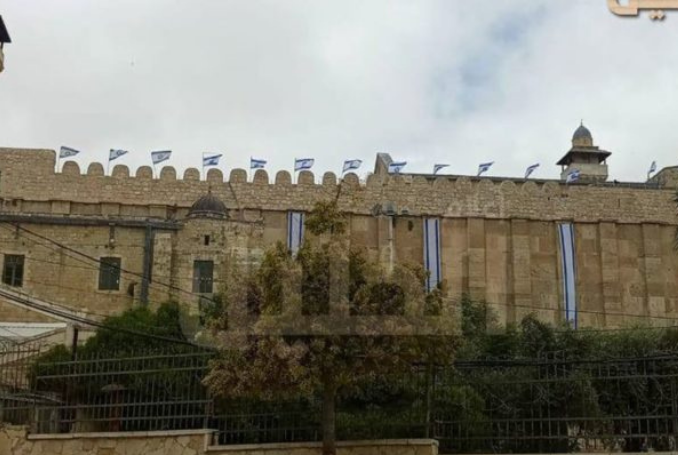
Currently, 63 percent of the mosque is under Israeli control and there are constant attempts to transform it into a synagogue by changing its features.
Last week, Palestinian residents from the city of Hebron (Al-Khalil), in the southern occupied West Bank, heard a message coming from the mosque’s loudspeakers, urging them to protect the Ibrahimi Mosque from a new Judaization attempt.
Israeli authorities had built a roof on one of the mosque’s open courtyards, making it similar to a Jewish synagogue, despite knowing that this area belongs to Muslims.
Therefore, the Islamic Awqaf Department immediately called on the people of Hebron to rush to the mosque in the Old City and protest these attempts.
At the end of the day, Israel was forced to desist from this step, which sparked great anger among the local population.
Deliberate Obstructions
Since 1994, when Israeli settler Baruch Goldstein carried out the infamous massacre of worshippers in the Ibrahimi Mosque, killing 29 Palestinians and injuring hundreds more, the situation in the city has worsened.
The Palestinians, the victims of the massacre, were the ones who were punished, as Israel divided the mosque in a completely unfair manner, allocating part of it to the illegal Jewish settlers.
Israeli authorities often close the mosque to Muslim worshippers for several days under the pretext of Jewish holidays. Moreover, they placed more than 120 barriers around the holy site to prevent Palestinians from accessing it, while of course allowing easy access to Jewish settlers.
The director of the mosque, Moataz Abu Sneina, told the Palestine Chronicle that an electric elevator had been recently installed so that elderly settlers could enter the mosque.
Repeated Violations
In the early hours of Thursday, July 18, the custodians of the mosque
were surprised by the arrival of Israeli trucks carrying building materials. After a few hours, Israeli workers had covered the mosque’s only outlet.
“We invited people to rush to the mosque to defend it,” Abu Sneina said. “On Friday, they (the Israeli authorities) were forced to retreat when UNESCO intervened,” he continued.
The Ibrahimi Mosque was placed on the World Heritage List by the United Nations Educational, Scientific and Cultural Organization in 2017.
Of course, this was not the first episode. The mosque is subjected to many violations, starting from obstructing the mo’athen access to call for prayers. Over the last month, this happened over 50 times, according to Abu Sneina.
Following the start of Israel’s aggression on Gaza, Israeli restrictions at the mosque increased. Even the residents of the area near the mosque have been prohibited from entering it except under extraordinary circumstances.
“Israel ignores international conventions, treaties, and customs regarding the protection of holy sites and places of worship, especially Al-Aqsa Mosque and the Ibrahimi Mosque,” Abu Sneina explained.
Judaization Attempts
Currently, 63 percent of the mosque is under Israeli control and there are constant attempts to transform it into a synagogue by changing its features.
The Arabic signs inside the mosque were converted to Hebrew, and Israeli flags are constantly raised over the holy site during Jewish holidays.
Planting audio and video cameras throughout the mosque so that Muslim worshipers are placed under constant surveillance.
“All of this is part of Israel’s policy of keeping worshippers away from this religious and historical place and harassing people through electronic gates that were installed years ago to restrict worshippers,” Abu Sneina said.
‘Military Barracks’
Badie Dweik, an anti-settlement activist and resident of the Old City of Hebron, compares his life before and after Israel took over the area.
He lives in the area surrounding the Ibrahimi Mosque and in the past, he used to reach it within minutes. Now it takes him more than an hour to arrive if he is not stopped at military checkpoints.
“Military checkpoints and gates impede our movement. Even our visits to relatives have been affected and there are homes that we cannot reach,” Dweik told The Palestine Chronicle.
“Soldiers are deployed all the time on the roofs of buildings and settlers are constantly seizing homes. Our area has literally turned into a military barracks,” he added.
Access to the mosque has become a risk for the residents of Hebron, as it is surrounded by checkpoints and gates, while snipers and settlers are deployed everywhere.
Worshippers are constantly subjected to searches, detention, arrest, and even shooting under any pretext.
For instance, a few days ago, a woman who was accompanied by two children was arrested on the pretext that she was carrying a knife in her bag. These violations are repeated continuously without any international monitoring.
On the other hand, settlers can access every part of the holy site with no barriers, no obstacles, and not even an ID card check.
“Only God knows how long one of us will spend at the Israeli checkpoint while heading to the mosque, to work, or even to his home. It all depends on the mood of the soldier,” Badie said.
(The Palestine Chronicle)
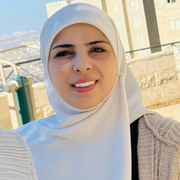
– Fayha’ Shalash is a Ramallah-based Palestinian journalist. She graduated from Birzeit University in 2008 and she has been working as a reporter and broadcaster ever since. Her articles appeared in several online publications. She contributed this article to The Palestine Chronicle.

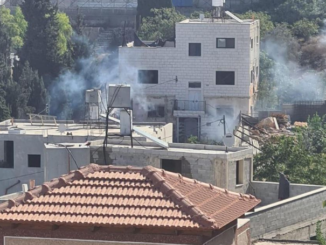
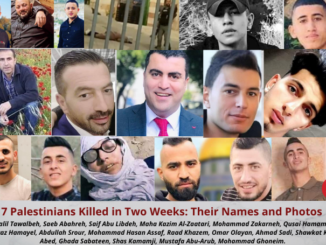
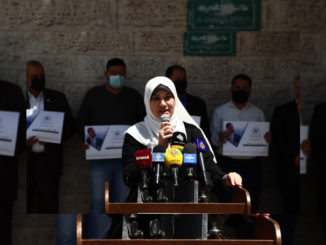




By Almighty mysteriously miracles. This Mosque Will be saved in a due time. Insha’Allah